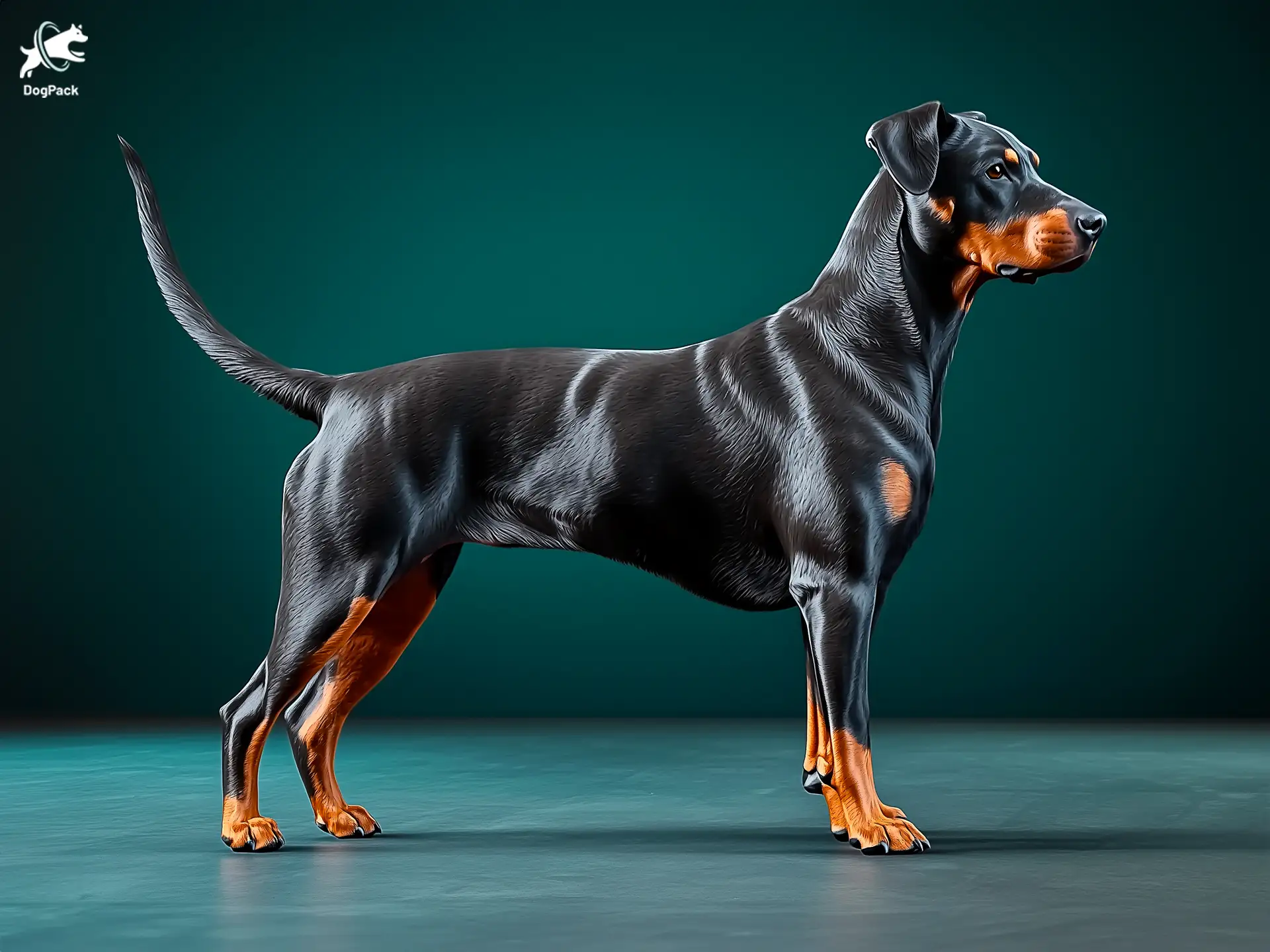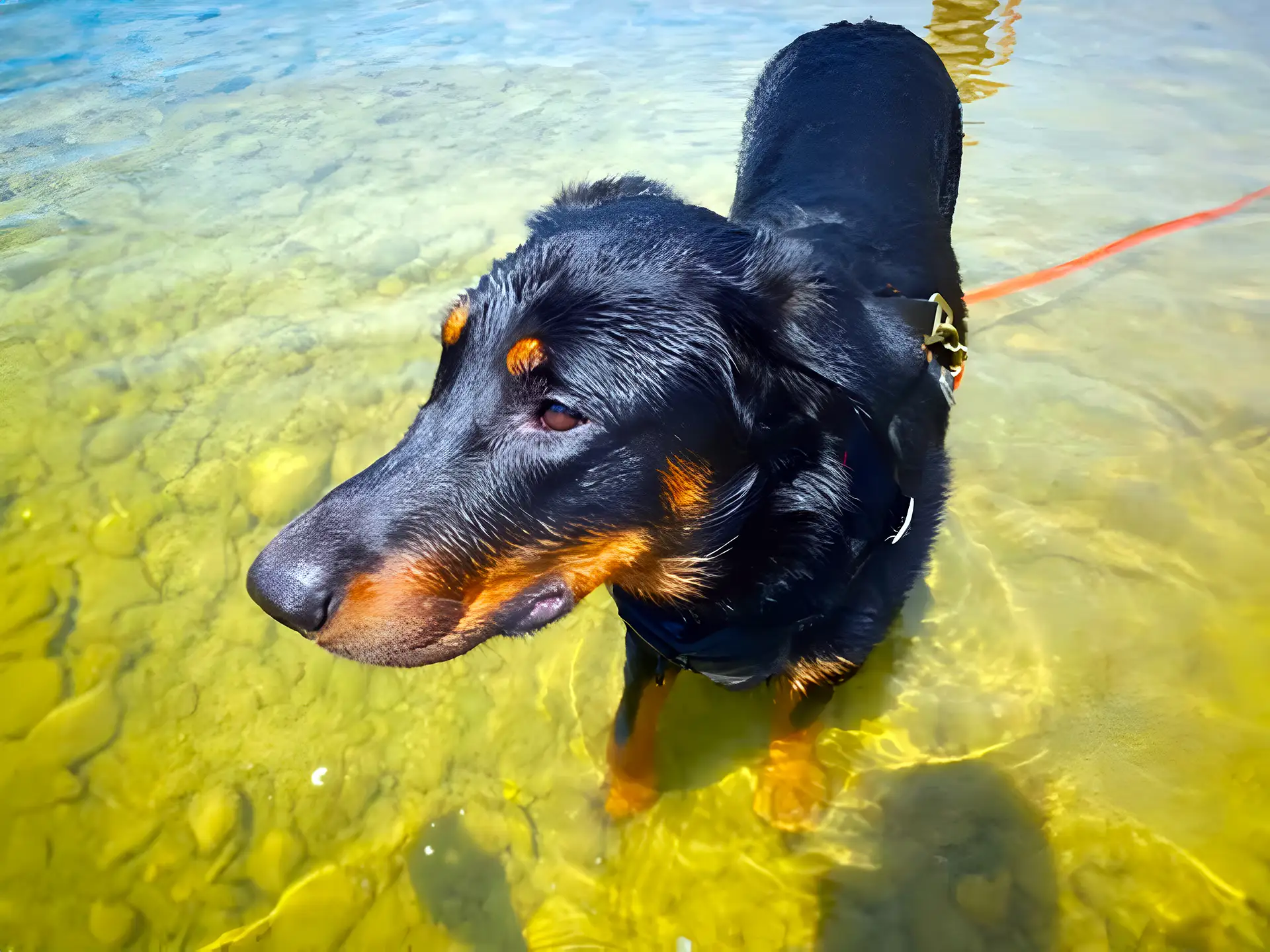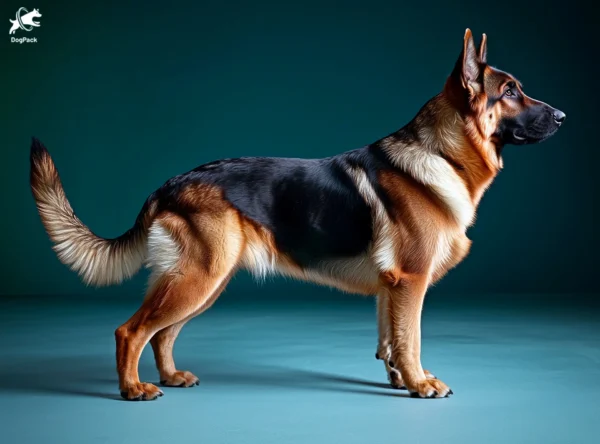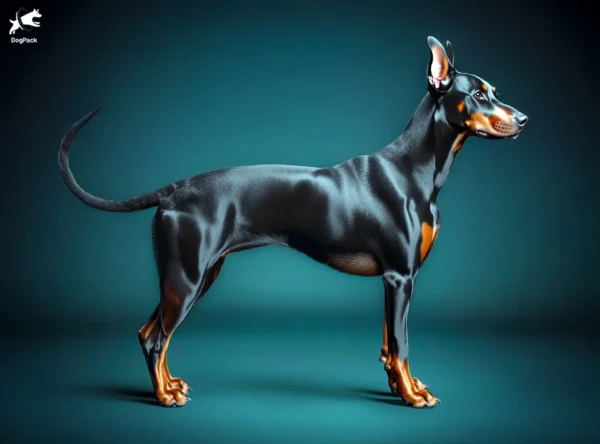Beauceron Dog Breed Info & Overview
The Beauceron is a remarkable blend of power, intelligence, and loyalty. Originating in France, this herding breed has been a trusted guardian of livestock for centuries. Their confident yet gentle nature makes them both skilled workers and devoted family companions. Whether protecting the farm or enjoying time at home, the Beauceron’s versatility and strong bond with its owner set this breed apart.
Characteristics
Pictures
Breed History
The Beauceron originated in France during the Middle Ages, primarily used for herding and guarding livestock. This versatile breed was essential for French farmers, needing a dog capable of managing flocks and protecting them from predators. Over the centuries, the Beauceron’s strength and intelligence made them invaluable working companions.
Interestingly, the breed’s name comes from the Beauce region surrounding Paris, although they were bred throughout northern France. Known as the “Bas Rouge” or “Red Stockings” due to the distinctive red markings on their legs, they have a rich history intertwined with French rural life. They were also utilized in both World Wars for their bravery and adaptability.
Today, the Beauceron remains relatively rare outside of France but has gained recognition for versatility in roles such as search and rescue, police work, and competitive obedience. Despite modern changes, the breed has retained much of its original characteristics, staying true to its roots as a hardworking and loyal companion.
Temperament, Personality
Beaucerons are known for their unwavering loyalty and protective nature. They form strong bonds with their families and are often described as gentle giants. Their intelligence makes them quick learners, but it also means they need mental stimulation to stay happy and well-behaved.
With proper socialization, they can be good with children and other pets, though their herding instincts might lead them to try and “herd” family members. They are naturally wary of strangers, which makes them excellent watchdogs. However, this trait requires early training to ensure they differentiate between friend and foe.
The breed thrives on companionship and can become anxious if left alone for extended periods. Beaucerons do best in homes where they are considered part of the family and included in daily activities. Their affectionate and protective personalities make them wonderful companions for those willing to invest time in their upbringing.
Physical Characteristics
Beaucerons are large, muscular dogs with a strong and imposing presence. Males typically stand between 25.5 and 27.5 inches (65–70 cm), while females are slightly smaller. Their weight ranges from 70 to 110 pounds (32–50 kg), reflecting their solid build and working heritage.
The breed’s coat is short and dense, with a coarse outer layer and a soft undercoat. The most common color is black and tan, featuring the distinctive “red stockings” on their lower legs. Some Beaucerons may also have a harlequin (blue-mottled with tan markings) coat, adding to their unique appearance.
One of the Beauceron’s notable features is their double dewclaws on the hind legs, a breed requirement in their native France. This characteristic harks back to their herding days, providing extra stability and traction. Their expressive dark brown eyes and erect ears give them an alert and intelligent expression.
Health Issues
Like many large breeds, Beaucerons can be prone to certain health issues. Hip dysplasia is a common concern, where the hip joint doesn’t develop properly, leading to arthritis and mobility problems. Regular veterinary check-ups and responsible breeding practices can help mitigate this risk.
Another health issue to be aware of is dilated cardiomyopathy, a condition affecting the heart muscle. Early detection through regular heart screenings can be crucial. Additionally, gastric torsion, or bloat, is a life-threatening condition that can affect deep-chested breeds like the Beauceron.
To ensure a healthy life for your Beauceron, it’s important to work with reputable breeders who screen for genetic conditions. Regular exercise, a balanced diet, and routine vet visits will also contribute to their overall well-being. Being proactive about their health can help your Beauceron live a long and happy life.
Grooming Needs
One of the perks of owning a Beauceron is their relatively low-maintenance coat. Their short, dense fur requires minimal grooming, typically needing a good brushing once a week to remove loose hair and keep their coat shiny. During shedding seasons in spring and fall, more frequent brushing may be necessary.
Bathing is only required occasionally, as over-bathing can strip the natural oils from their coat. Regular checks of their ears for debris and cleaning them as needed will help prevent infections. Their nails should be trimmed regularly to prevent overgrowth and splitting.
Don’t forget dental hygiene—brushing your Beauceron’s teeth several times a week can prevent tartar buildup and promote overall health. Grooming sessions are also a great opportunity to check for any skin issues or abnormalities. Starting a grooming routine early in life will help your Beauceron become comfortable with being handled.
Exercise Requirements
Beaucerons are high-energy dogs that require ample daily exercise to stay healthy and happy. A minimum of 1–2 hours of physical activity is recommended, including walks, runs, and playtime. They excel in activities like agility, herding trials, and obedience competitions.
Due to their working background, they thrive when they have a job to do. Mental stimulation is just as important as physical exercise. Puzzle toys, training sessions, and interactive games can help keep their sharp minds engaged.
Without sufficient exercise and mental challenges, Beaucerons may develop behavioral issues such as restlessness or destructive chewing. Active owners who enjoy outdoor activities will find a perfect companion in this breed. Remember, a tired Beauceron is a well-behaved Beauceron.
Training Tips
Training a Beauceron requires consistency, patience, and a firm but positive approach. Their intelligence and eagerness to please make them highly trainable, but they can also be strong-willed. Early obedience training and socialization are crucial to harness their natural abilities.
Using positive reinforcement techniques such as treats, praise, and play will yield the best results. Harsh or punitive methods can damage the trust between you and your Beauceron. Short, varied training sessions will keep them engaged and prevent boredom.
Enrolling in puppy classes or working with a professional trainer experienced with large, intelligent breeds can be beneficial. Teaching your Beauceron new commands and tricks will not only improve their behavior but also strengthen your bond. Remember, ongoing training is a lifelong process for this active and intelligent breed.
Nutrition, Diet
Feeding a Beauceron requires attention to their size and energy levels. A high-quality dog food formulated for large breeds with high activity is recommended. Depending on their age and activity level, an adult Beauceron may consume between 3 to 5 cups of food per day, divided into two meals.
It’s important to monitor their weight and adjust portions accordingly to prevent obesity, which can exacerbate joint issues like hip dysplasia. Avoid free-feeding and stick to scheduled meal times. Consult your veterinarian to determine the optimal diet plan tailored to your Beauceron’s specific needs.
Be cautious of bloat, a serious condition that can occur in large, deep-chested breeds. To reduce the risk, avoid feeding your Beauceron immediately before or after intense exercise and consider using a slow-feed bowl. Providing fresh water at all times and maintaining a consistent feeding schedule will contribute to their overall health.
Adoption, Breeders
If you’re interested in adding a Beauceron to your family, it’s important to find a reputable breeder who prioritizes health and temperament. Responsible breeders will provide health clearances and allow you to meet the puppy’s parents. They should also be knowledgeable about the breed and willing to answer all your questions.
Adoption is another wonderful option. There are breed-specific rescue organizations such as the American Beauceron Club Rescue that help rehome dogs in need. Adopting a Beauceron can be a rewarding experience, providing a loving home to a dog in need.
Whether you choose to adopt or buy, ensure you’re prepared for the commitment that comes with owning a Beauceron. Research thoroughly and consider reaching out to breed groups like the American Beauceron Club for additional resources and support.
Family Pet?
Beaucerons can make excellent family pets for those who understand their needs. Their loyal and protective nature means they form strong bonds with their family members. They are generally good with children, especially when raised together, but supervision is recommended due to their size and strength.
Early socialization is key to ensuring they get along well with other pets. Their herding instincts may lead them to chase smaller animals, so introductions should be managed carefully. With proper training, they can coexist peacefully with other dogs and even cats.
Families who are active and can provide the exercise and mental stimulation a Beauceron requires will find a devoted companion in this breed. Their affectionate demeanor combined with their guarding instincts makes them a great addition to the right household.
Right For You?
Deciding if a Beauceron is right for you involves assessing your lifestyle and experience with dogs. This breed thrives in active homes where they can participate in daily activities and have a job to do. They are best suited for owners who have experience with large, intelligent breeds.
If you have the time and commitment to invest in training, exercise, and socialization, a Beauceron can be a rewarding companion. They may not be ideal for apartment living or households where they would be left alone for long periods.
Ultimately, the Beauceron is a loyal and hardworking breed that requires dedication and understanding. If you’re looking for a devoted partner who will join you in life’s adventures, the Beauceron might just be the perfect match.
Conclusion
Bringing a Beauceron into your life is a commitment to an intelligent, active, and loyal companion. Their unique combination of strength, agility, and affection sets them apart from other breeds. If you’re prepared to meet their needs and welcome them as part of your family, the Beauceron can offer a fulfilling and lasting relationship.
FAQs
-
Are Beaucerons easy to train for advanced tasks?
Yes, Beaucerons are highly trainable, especially for advanced tasks like search-and-rescue or protection work. Their intelligence and eagerness to learn make them well-suited for complex commands.
-
Do Beaucerons adapt well to apartment living?
Beaucerons are better suited for homes with space to roam. While they can adapt to apartment living with plenty of exercise, they thrive in environments where they can engage in physical activities.
-
How well do Beaucerons handle cold weather?
Beaucerons are quite resilient to cold weather, thanks to their double coat. However, they still need protection during extreme conditions, especially if they’re spending long hours outdoors.
-
Are Beaucerons prone to separation anxiety?
Beaucerons can develop separation anxiety if left alone for long periods. These dogs are social and thrive on companionship, so providing mental stimulation and avoiding extended isolation is important.
-
What type of work is best suited for a Beauceron?
Beaucerons excel in herding, protection, and even agility work. Their strong work ethic and intelligence make them ideal for roles that challenge both their minds and bodies.
Breed Ratings
The Beauceron is highly intelligent, making training both rewarding and essential for this smart breed.
They enjoy playtime with their family, especially activities that challenge them mentally and physically.
With high energy levels, Beaucerons need ample exercise to stay happy and well-behaved.
Moderate shedding occurs year-round, with heavier shedding during seasonal changes.
Their herding instincts can translate into a moderate prey drive; early training helps manage this trait.
Their short coat requires minimal grooming, making maintenance relatively easy.
Intelligent and eager to please, but they require consistent and positive training methods.
Beaucerons prefer companionship and may develop anxiety if left alone for long periods.
They may bark to alert but are generally not excessive barkers.
Low drooling makes them a cleaner companion compared to some other large breeds.
With proper socialization, they can get along with other dogs, but may be dominant.
Generally healthy but prone to certain conditions; regular vet care is important.














